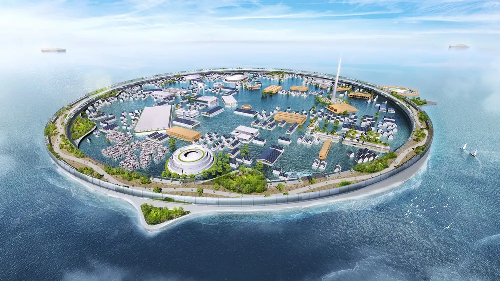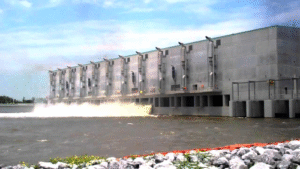In a bold step toward climate-resilient urban living, Japan has announced plans to build the world’s first full-scale Floating City by 2030, capable of housing up to 40,000 residents. The ambitious project is designed to be disaster-resilient, environmentally sustainable, and self-sufficient, setting a new benchmark in futuristic urban engineering.
Engineered by a consortium of Japanese marine architects, environmental scientists, and technology firms, the floating city will be constructed on massive, interlocking platforms designed to float on the ocean surface, resistant to tsunamis, typhoons, floods, and rising sea levels.
The design incorporates earthquake-buffering technologies, deep-sea mooring systems, and marine disaster resistance protocols, ensuring maximum safety in one of the world’s most seismically active regions.
- Capacity: 40,000 residents
- Modules: Divided into residential, commercial, agricultural, and recreational zones
- Energy: Fully powered by solar, wind, and tidal energy
- Water: Includes desalination plants and closed-loop water recycling systems
- Food: On-site vertical farms and aquaculture units for self-sufficiency
- Transit: Electric, autonomous water-based transport within the city
The floating city is part of Japan’s larger effort to adapt to rising sea levels and coastal urban congestion, providing a sustainable model for climate-vulnerable nations. The city’s design emphasizes low carbon living, circular economy principles, and smart city infrastructure powered by AI and IoT.
A spokesperson from Japan’s Ministry of Land, Infrastructure, Transport and Tourism said:
“This isn’t science fiction—it’s a blueprint for the future. The floating city will not only withstand marine disasters but will offer a high quality of life while respecting nature’s limits.”
The project is being spearheaded by a partnership between government agencies, top Japanese engineering firms, and international sustainability experts.
As the world grapples with climate change, overpopulation, and shrinking land resources, Japan’s floating city marks a transformative leap in how humans can coexist with the ocean—not just surviving, but thriving.






